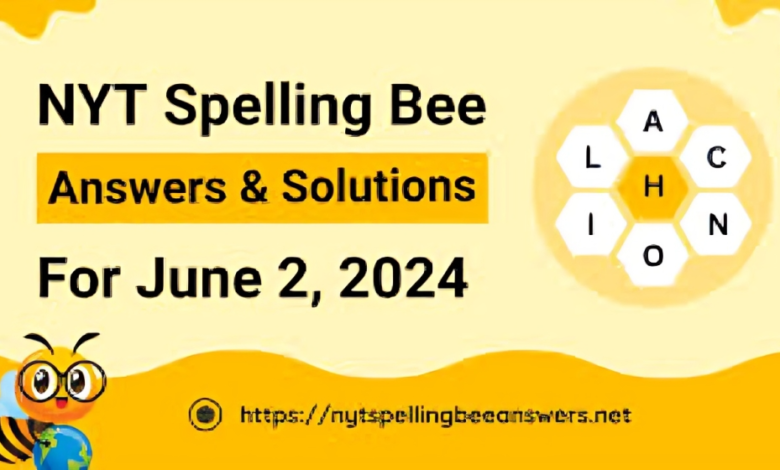Spelling Bee Answers A Comprehensive Guide to Improve Your Spelling Game

Spelling bees have long been a popular way to test and enhance one’s vocabulary and spelling skills. From classroom competitions to national events like the Scripps National Spelling Bee, spelling challenges push participants to expand their word knowledge. As spelling bees become more popular, there’s increasing interest in finding and mastering spelling bee answers.
In this article, we will dive deep into spelling bee tips, strategies to improve your spelling, and how to find and practice spelling bee answers to become a top performer.
The Importance of Spelling Bees
Spelling Bee Answers are more than just competitions; they are an educational tool that promotes:
- Vocabulary building: Competitors are exposed to new words, helping them develop a robust vocabulary.
- Confidence boosting: Participating in spelling bees can enhance self-confidence, especially in public speaking settings.
- Cognitive benefits: Learning and recalling word spellings exercises the brain, improving memory and cognitive function.
How to Prepare for Spelling Bees
Whether you’re preparing for a classroom spelling bee or an advanced competition, you’ll need to master spelling bee words to excel. Here’s how you can effectively prepare:
1. Build a Strong Vocabulary
The first step in mastering spelling bee answers is to have a broad vocabulary. The wider your vocabulary, the better prepared you’ll be to handle challenging words. Some tips to improve vocabulary include:
- Reading: Reading books, articles, and even academic papers exposes you to new words.
- Word lists: Study lists from reputable sources like the Scripps National Spelling Bee word lists or Merriam-Webster.
- Daily practice: Make it a habit to learn at least one new word daily and understand its meaning and usage.
2. Study Commonly Used Spelling Bee Words
Spelling bees often rely on a set of words that are frequently used in competitions. Commonly used spelling bee words include:
- Antidisestablishmentarianism
- Onomatopoeia
- Chrysanthemum
- Floccinaucinihilipilification
By familiarizing yourself with these types of challenging words, you’ll improve your chances of recalling the correct spelling in competitions.
3. Use Mnemonics and Memory Aids
Mnemonics are memory aids that help make complex information easier to remember. Some effective mnemonic strategies for spelling bee answers include:
- Rhymes: Create rhymes or songs that make the word easier to remember.
- Acronyms: Break down words into smaller segments and create an acronym to help recall them.
For example, for the word “accommodate,” many people remember the correct spelling by using the phrase “All Cats Must Cling Onto Dogs All Time Effectively” where the first letters match the key elements of the word’s spelling.
4. Master Root Words, Prefixes, and Suffixes
Understanding word roots, prefixes, and suffixes is crucial in spelling bees, as it helps you deduce unfamiliar words. For example:
- Root words like “astro” (meaning “star”) can help you understand words like “astronomy” and “astrophysics.”
- Prefixes like “un-” (meaning “not”) can turn words like “happy” into “unhappy.”
- Suffixes like “-ous” (meaning “full of”) change words like “joy” into “joyous.”
By mastering the building blocks of words, you’ll be more prepared to handle words you’ve never seen before.
5. Practice Spelling Bee Apps and Games
Spelling bee preparation doesn’t have to be boring. In fact, using online spelling bee apps and games can make learning fun and effective. Some great tools include:
- SpellPundit: Offers study lists, practice tools, and quizzes specifically tailored for spelling bee participants.
- Spelling Bee Ninja: Provides a large database of words and features AI-driven learning that adapts to your level.
- Merriam-Webster’s Spelling Bee Game: An interactive platform offering daily word challenges and spelling quizzes.
6. Participate in Mock Spelling Bees
One of the best ways to prepare for a spelling bee is by participating in mock competitions. You can host a spelling bee at home or find online resources that simulate the competition environment. Mock bees allow you to:
- Test your knowledge under pressure.
- Identify areas where you need improvement.
- Build confidence in a low-stakes environment.
Finding and Practicing Spelling Bee Answers
Many participants are eager to find reliable spelling bee answers to practice, but how can you do this efficiently?
1. Online Resources
Numerous websites offer free word lists and spelling bee answers. Some of the top resources include:
- Scripps National Spelling Bee: The official Scripps website offers a downloadable study guide for students preparing for the competition.
- Merriam-Webster: The dictionary provides word lists for different skill levels, along with pronunciation guides and definitions.
- Quizlet: This popular study tool features flashcards and quizzes on spelling bee words, which are useful for both beginners and advanced competitors.
2. Word Lists by Grade Level
Many educators and spelling bee organizations create word lists that are organized by grade level. These lists help students at different levels focus on words that match their skillset. Some sources include:
- 1st to 3rd Grade Lists: Focuses on basic phonetic words like “apple” and “banana.”
- 4th to 6th Grade Lists: Introduces more complex words like “umbrella” and “engineer.”
- 7th to 8th Grade Lists: Begins incorporating challenging terms like “pseudonym” and “cacophony.”
- High School Level: Includes advanced vocabulary like “serendipity” and “quizzacious.”
By targeting words that match your level, you can gradually advance through harder vocabulary.
3. Mobile Apps for Spelling Practice
For those constantly on the go, mobile apps provide an easy way to practice spelling bee words and answers. Some top apps include:
- Word Club: The official Scripps National Spelling Bee app lets users practice words by difficulty level, track progress, and even compete with friends.
- Spelling Master: Offers levels that increase in difficulty, from easy to expert.
- Ultimate English Spelling Quiz: A great app for testing spelling and vocabulary through multiple-choice quizzes.
Expert Tips for Spelling Bee Success
While memorizing words and practicing regularly is crucial, the following expert tips can give you a competitive edge in your spelling bee preparation:
1. Learn Word Origins
Many spelling bee words come from Latin, Greek, and French origins. Understanding these language roots helps you spell unfamiliar words correctly. For instance:
- Latin roots often have double consonants or unusual letter combinations.
- Greek words often feature “ph” instead of “f” or “ch” instead of “k.”
- French origin words might have silent letters or end in “-eau.”
2. Stay Calm Under Pressure
During a competition, maintaining composure is essential. When presented with a word, take your time to:
- Ask for the word to be repeated.
- Request the definition or sentence usage.
- Break the word down syllable by syllable.
3. Keep Practicing
Even top spellers face challenging words. Consistent practice is the key to improving your performance over time.
Conclusion
Mastering spelling bee answers requires a blend of regular practice, vocabulary building, and understanding word origins. Whether you’re competing at a school level or aiming for a national competition, these strategies and resources will help you improve your spelling game. By utilizing the tips and resources mentioned in this guide, you can sharpen your spelling skills and confidently tackle any spelling bee challenge you face. Good luck, and may the best speller win!




